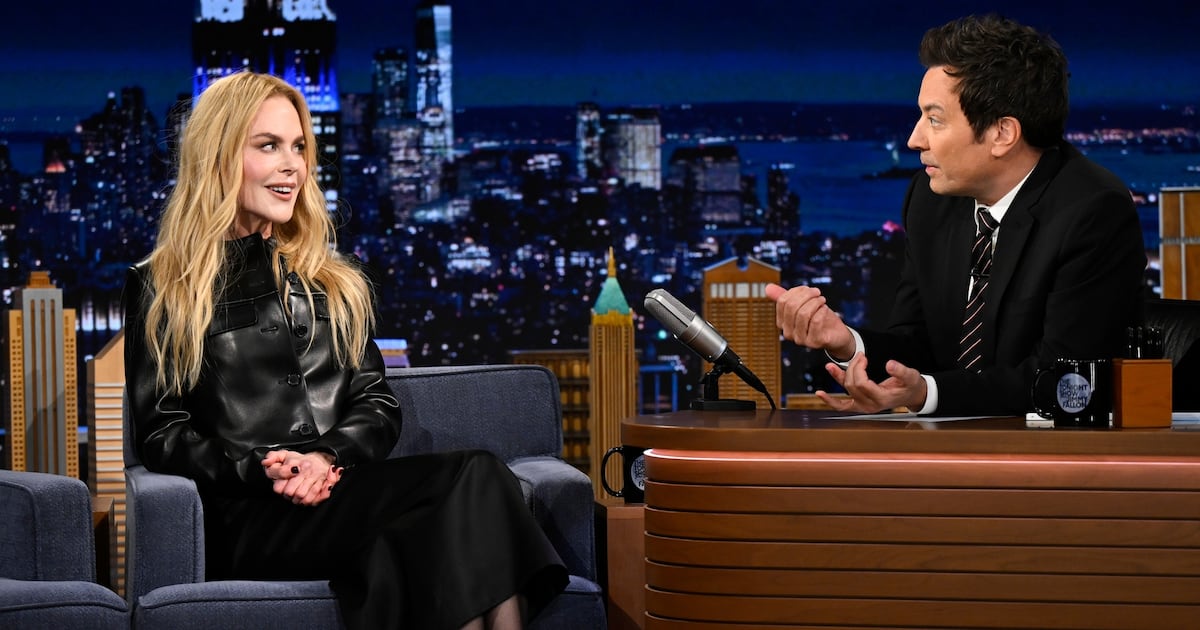Joe Goldberg may fancy himself the anti-hero, but this season's big twist reminds us he'll always be the villain.
Shows like You, Netflix's absurdist drama about a love-addled serial killer trying to break bad (and always failing, to violent results), run a particular risk. People tend to root for main characters—that's what makes a story with a protagonist compelling—but what happens when the main character is also the bad guy? Penn Badgley, who plays Joe Goldberg, spent one memorable press tour for the show running interference against fans attempting to daddy-fy his character and romanticizing the notion of being locked in a climate controlled aquarium by an obsessive maniac. Joe's past, present, and likely future as a cold-blooded killer, he reminded us, is kind of a red flag.
The first five episodes of the fourth season, however, seemed to veer away from that notion, reintroducing Joe, or, rather, Jonathan, as the moody tweed-clad London-dwelling literature professor of our dreams. He falls in with a group of wealthy socialites who are being picked off one by one by the "Eat the Rich" killer, and, always trying to redeem himself, attempts to solve the murders while keeping his new lover Kate (Charlotte Ritchie) alive. Okay, so Joe's the hero now, kinda. He's still weird, and he still killed people, but I guess the show is finally done with reminding us that we shouldn't be rooting for him.
Oh, it was never going to be that simple. Episode 5 of Season 4, "The Fox and the Hound," reveals that Rhys Montrose, a bestselling author always in the background of the rich people's parties, had orchestrated the murders, attempting to frame Joe for them after discovering who he really was. Joe survives Rhys' murder attempt and the episode leaves off with him vowing to take Rhys down his own way, as Rhys announces his mayoral run. The first couple of episodes of the second half of the season give Joe a reluctant assassin plot, with both Rhys and Kate's scary father Tom Lockwood (Greg Kinnear) using Joe to hunt each other, before cracking everything wide open. Specifically, cracking Joe wide open, splitting him in two.

Joe successfully kills Rhys Montrose. As soon as he does so, who shows up but… Rhys Montrose. Joe had read his book, A Good Man in a Cruel World, likely the sort of phrase Joe would use for himself. He'd watched all of Rhys' videos, listened to his voice, but had never actually spoken to the man once. It turns out that Joe did kill Rhys—the real Rhys, who was telling the truth when he insisted that the two had never met. Joe's psyche has chosen Rhys Montrose as the persona for Joe's evil half, locking his worst impulses away inside an imaginary friend who has been dictating his every action. Very Jekyll and Hyde—Joe is a book-lover, after all.
What, then, has Joe been doing when he's "Rhys"? Making Marienne's life hell, for one thing. After he allowed his former lover, played by Tati Gabrielle, to escape him during their encounter in Paris earlier this season, he returned, kidnapping her and ultimately trapping her inside his glass box he set up in an unused section of the London Underground. She's been there this whole time, only visited by Joe when he's "not Joe," hypnotized by voice recordings of Rhys, until he stops showing up at all. The Joe on the surface is completely unaware. The final episodes of the season chart Joe's realization of the horrors of what he's done, while Marienne, helped by Joe's precocious student Nadia (Amy-Leigh Hickman), makes her escape.
The final episodes of the season take the show back to basics, reminding us of the status quo via an inspired, if ludicrous split-personality twist. Joe is an awful, scary person, and not even his clear horror at what he has done can stop him from continuing to perpetrate violence on those closest to him in the name of saving himself. He murders Kate's father to give her (and himself) control over her life. When he finds Marienne's body after her death (faked, but he doesn't know), he makes it look like a drug overdose. He sends Nadia to prison for her trouble, and kills her crush to make sure she doesn't talk. When he attempts to kill himself, he, of course, survives, and emerges from the hospital with renewed vigor for continuing to inflict himself on the world.
Still, Joe remains the narrator, forcing us to see his actions from his perspective. He cleaned the whole situation up in the only way he knows how: by dispatching anyone who could be considered a loose end. We experience all of the desperate reasoning behind everything he does. We believe that he believes this is the only way to “fix” things. We're in his head, watching as he continues to trap himself in a hell of his own making. Taylor Swift's screwup anthem “Anti-Hero” plays over the season's gleefully triumphant ending, its layered lyrics echoing Joe's own warped self-perception: “It's me, hi, I'm the problem, it's me.” Yes, we agree. It's always you.
Keep obsessing! Sign up for the Daily Beast’s Obsessed newsletter and follow us on Facebook, Twitter, Instagram and TikTok.






